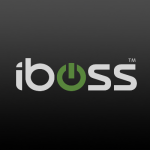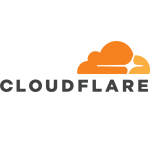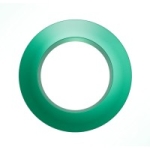What is our primary use case?
We deal with messaging, specifically A2P, P2P, and RCS, a rich communication service.
We use Fortinet FortiGate 500, 600, and 900E, which are mainly used for data center activities.
How has it helped my organization?
Fortinet FortiGate has helped us significantly in many ways. Previously, we had multiple data centers interconnected over IPsec tunnels. Each IPsec tunnel was individual, and if that tunnel went down, manual intervention was needed to reroute the traffic to the available path. To avoid such cases, I introduced the SD-WAN concept using ADVPN (auto-discovery VPN). With this solution, I have almost four sites where critical traffic flows, avoiding many impacts. The reason we prefer Fortinet FortiGate SD-WAN is that it enables automatic establishment of the next available VPN if any connectivity goes down, ensuring all hub and spoke connectivity flows through the hub. Using ADVPN, spoke-to-spoke communication is established so that hub bandwidth or hub firewall does not get overloaded.
What is most valuable?
The best features in Fortinet FortiGate are the SD-WAN, IPsec tunnel, and the SSL VPN. It is very user friendly, and we can integrate multiple underlay links to the firewall. From there, you can manage it, and by using this SD-WAN concept, the device itself will make decisions about which path to take to reach the destination. If there are any issues on the desired path, it will automatically select the best path based on the configuration defined in the SLAs. This feature is particularly impressive. Before introducing SD-WAN, I had perimeter devices such as independent routers where intelligent routing across the underlay links was not possible.
It is very informative and easy to implement. The GUI is very user friendly. Using this solution, we can easily integrate security profiles based on needs and requirements of internal stakeholders to avoid malicious traffic or security-related issues.
When onboarding any Fortinet FortiGate to your production platform with active internet connectivity, the device connects to FortiGuard to fetch all signatures and behavioral patterns based on your security policy. It detects anomalous traffic and packets undergo deep inspection. If there are any anonymous or malicious activities, it immediately blocks them based on defined policy actions and alerts the end user and network administrator via FortiManager or via the cloud.
What needs improvement?
I don't have any areas for improvement in terms of features. With the introduction of AI/ML, they are performing behavioral pattern checks in terms of security. They have removed the SSL web-based and tunnel-based features, and they are improving in many aspects including the UI. However, throughout this year, their support has been very poor.
For how long have I used the solution?
We have been using Fortinet FortiGate for more than 10 years.
What do I think about the stability of the solution?
It's stable. I would rate it a ten out of ten for stability.
What do I think about the scalability of the solution?
It's scalable. I would rate it a ten out of ten for scalability.
We have clients with more than 2,000 users.
How are customer service and support?
Their support needs improvement. When raising a service request on the portal, it normally takes two to three days for a response. Even for production issues, they do not initiate contact. The customer has to call the TAC before they schedule calls, which is problematic.
How would you rate customer service and support?
How was the initial setup?
The deployment is very easy. People who are familiar with Fortinet FortiGate can implement it through CLI and GUI. It is very user-friendly for deploying complex configurations. There is also a tool called FortiExporter, which can convert all configurations from any OEM to Fortinet FortiGate.
It doesn’t require much maintenance. The only maintenance activity required is firmware updates.
What was our ROI?
We have approximately 84 devices in production, demonstrating our investment in Fortinet FortiGate and its usefulness in many ways.
We have invested almost 60% to 70% in Fortinet FortiGate as we don't have any other firewall apart from it. In some cases where we had Palo Alto, we removed it and purchased Fortinet FortiGate. We are using Fortinet FortiGate as our production firewalls in our organizations, corporate offices, and all locations.
What's my experience with pricing, setup cost, and licensing?
What other advice do I have?
In terms of cost, features, and security, everything is top-notch. I would recommend everyone to use Fortinet FortiGate instead of purchasing expensive firewalls such as Palo Alto and other OEMs. It is more economical and provides more flexibility and granularity in terms of access.
Fortinet is a market leader. It is phenomenal in terms of price and kind of services.
I would recommend Fortinet FortiGate to others. I would rate it a ten out of ten.
Which deployment model are you using for this solution?
On-premises
Disclosure: My company does not have a business relationship with this vendor other than being a customer.
















